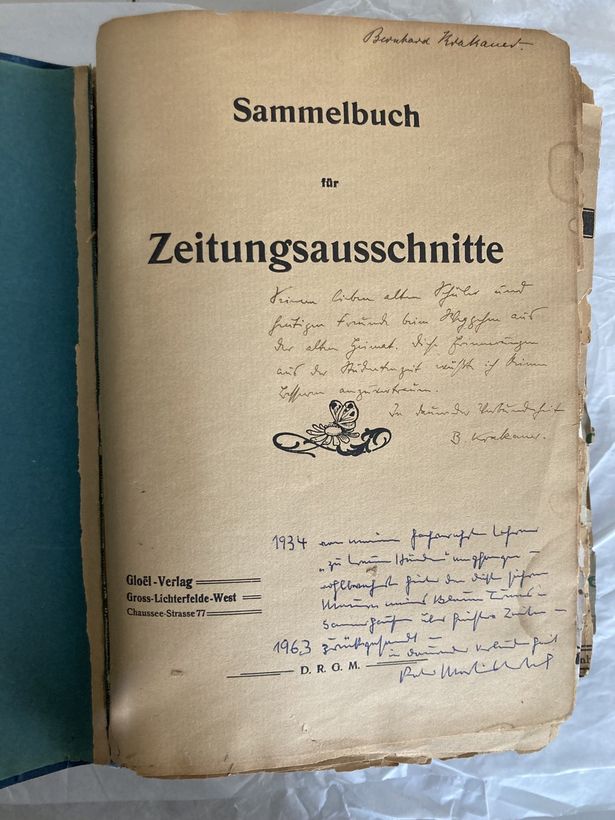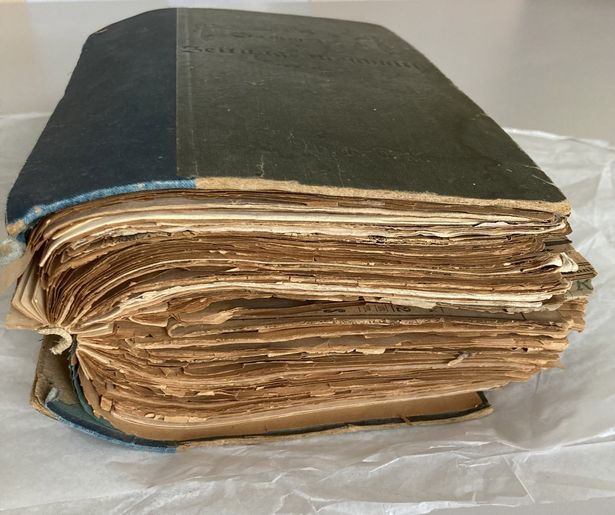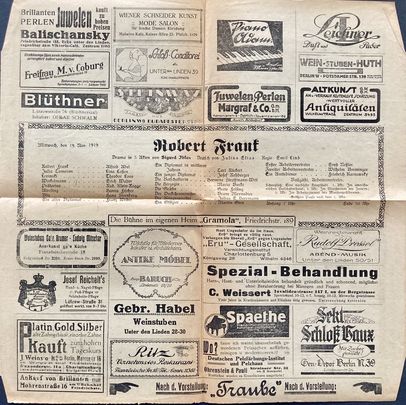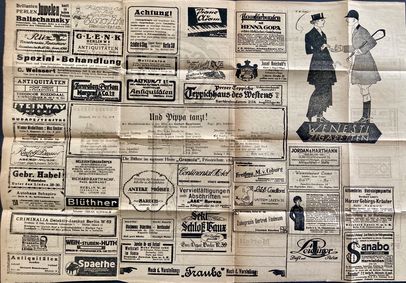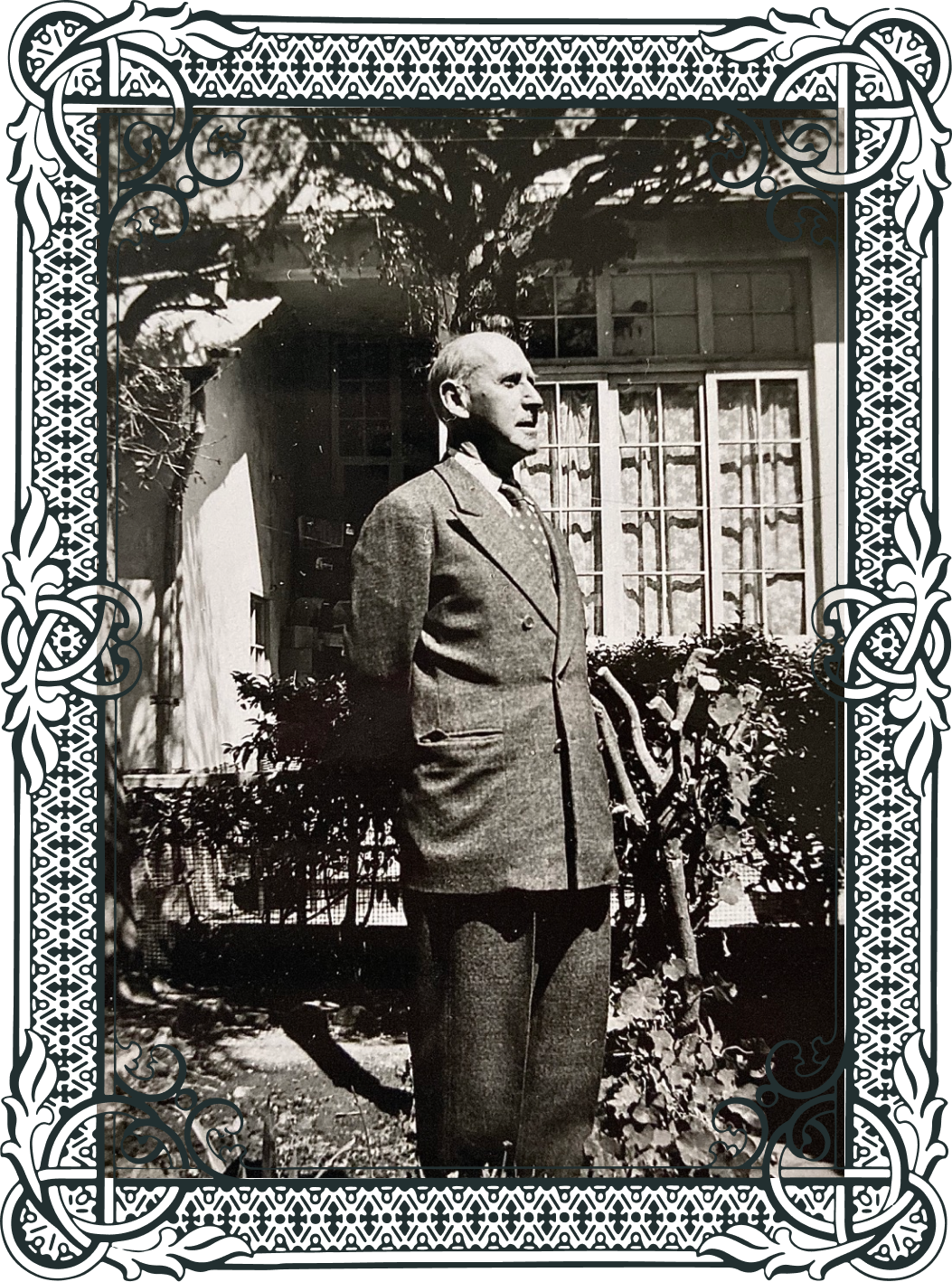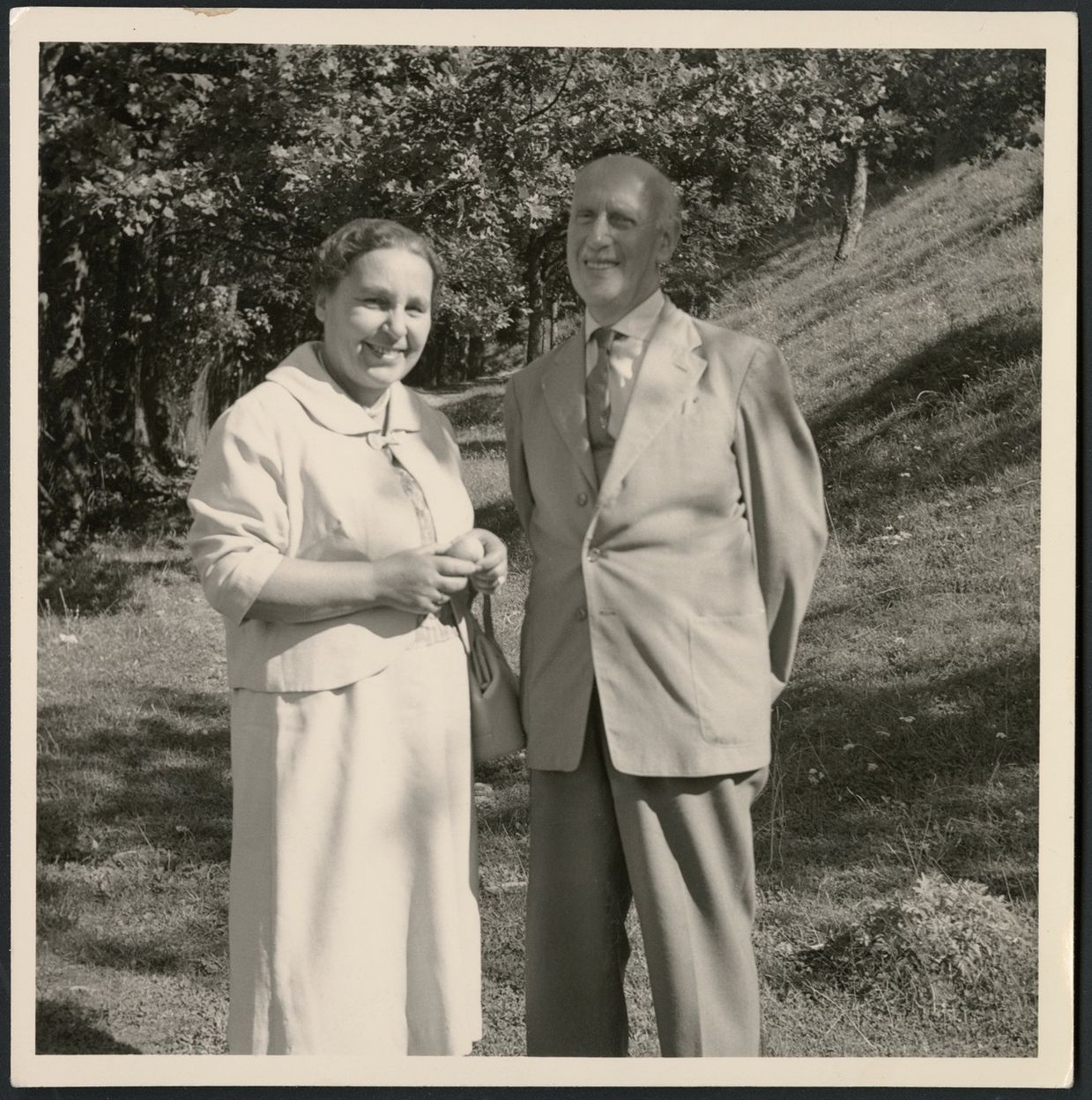Berlin, 31 December 1919
In the Auditorium With
Bernhard Krakauer
A conversation with Berlin theatergoer Bernhard Krakauer by our reporter Alexandra Mae Hiebert
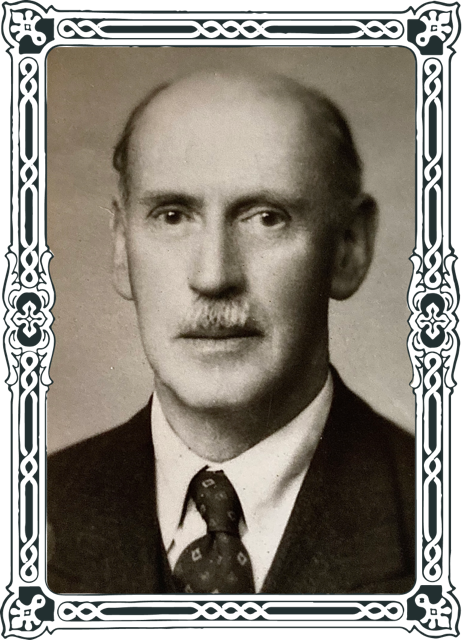
© Miriam Rothbacher
Hiebert sits in the auditorium of the Lessing Theater, highly anticipating the final performance of the year 1919:
Sir, are you a real theatre expert?
‘You know, I started collecting playbills when I was young. Back than I was only 17 years old. A young man who liked visiting the theatre in his free time, besides school and friends. In 1909 I started to collect the playbills and programs of performances in a book. Some of my favourite plays were English classics by Shakespeare, but I also enjoyed the work of the Scandinavians such as Henrik Ibsen and August Strindberg. In addition to Shakespeare, I also enjoyed watching plays by Bernard Shaw. In general, I’d like to say that Max Reinhardt’s productions at the Deutsches Theater were always entertaining performances!’
What are your favourite theatres?
‘I have a lot of wonderful theatres to choose from in Berlin, but I have to admit that the Deutsche Theater is one of my absolute favourites. But of course, I do not only visit the Deutsches Theater. I also very much enjoy going to the Lessing Theater and the SchlossparkTheater. From 1909 to 1919 I went to about 40 different venues and theatres that host a variety of cultural events. It’s almost impossible to list them.’
So what brings you to the Lessing Theater today?
‘This year I saw two performances by the actor Josef Rehberger. They were in Der grüne Kakadu (‘The Green Cockatoo’) by Arthur Schnitzler, and in Henrik Ibsen’s drama Robert Frank. I saw the first one on the fifth of November and the latter a couple of days later, on the eleventh. In Berlin I had the honour of seeing not only him on stage, but little Lia Rosen as well! In 1911, I saw the young lady in Max Reinhardt’s production of Aeschylus’ Die Orestie (‘The Oresteia’) and in Heinrich Kleist’s tragedy Penthesilea. Back then she still played in smaller roles, but nonetheless illuminated the stage. I am already very excited about her appearance in today’s play. I have seen that she will be in the leading role of Pippa, in Gerhart Hauptmann’s Und Pippa tanzt! (‘And Pippa Dance!’). I am convinced that this talented young girl has turned into a star!’
If you visit the theatre so often, how do you remember all the plays?
‘My theatre playbill collection makes it possible for me to remember all 167 performances I've attended so far. It tells me my personal theatregoing story, and hopefully many more impressions will follow.’
The lights go down and the play begins. Thank you Mr. Krakauer!
‘He was a great collector and this collection has gone around the world.’
m
Miriam Rothbacher,
Bernhard Krakauer’s daughter, 2023
Bernhard Krakauer
born 25 December 1892, Berlin
died 27 May 1971, Tuttlingen
Biography
Bernhard Adolf Krakauer was born in Berlin on 25 December 1892, the second child of Max Krakauer (life dates unknown) and Flora (née Süskind, 1858–1916). His father was a merchant and his mother a choir member. Together with his parents and his sister, Eva Adele Krakauer (1890–1925), who was two years older, he lived at Melanchthonstrasse 18 in Berlin. He attended the Königliche Luisen-Gymnasium in Berlin. Already as a young man he was enthusiastic about theatre and, at the age of 17, he started a collection of playbills and programmes, to which he added consistently over the next 13 years.
Bernhard Krakauer received his high school diploma at Easter in 1911. Shortly thereafter, he began his studies at the Friedrich Wilhelm University in Berlin, where he studied English and French. With the outbreak of World War I, he enlisted as a volunteer. The war years brought him much suffering. His mother died on 17 February 1916, and he himself was wounded. In November 1918 he was discharged as a lieutenant in the reserves.
g
After the war he became a convinced pacifist, continued his studies, and began visiting the theatre more often. His dissertation, for which he wrote about Die Entstehungsgeschichte von Miss Mitfords ‘Our Village’ (‘The Genesis of Miss Mitford’s “Our Village”’), also reflects his love of theatre. Krakauer received his doctorate in philosophy on 15 March 1921, after which he worked as a teacher. On 4 April 1925, married Eva Agathe Wilhelmine (1901–1978), the daughter of his colleague Dr. David Engländer (1863–1942). In addition to his work as a teacher, Bernhard Krakauer was also a committed school reformer and a member of the Bund Entschiedener Schulreformer (‘League of Decisive School Reformers’). On 3 June 1931, his son Ludwig Krakauer Engländer (1931–1986) was born.
With the rise to power of the National Socialists, the family’s life changed abruptly. In April 1933, Bernhard Krakauer was given his first leave of absence. He lost his position as a high school teacher in October 1935, the same year his daughter Miriam Krakauer (b.1935) was born. Four years later, the family fled to Bolivia. In the 1960s he returned to Germany with his wife. He died in Tuttlingen on 27 May 1971.
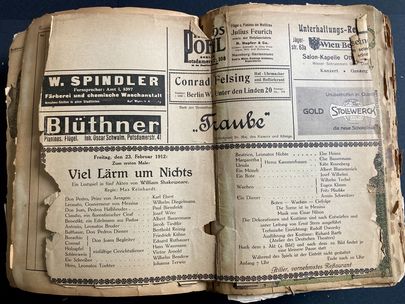
© Archive and Collections of the Institute for Theatre, Film and Media Studies at the University of Vienna
What remains?
k
In April 1933, Bernhard Krakauer was put ‘on leave’ for the first time. His service as a war volunteer in World War I and the war badge he had received enabled him to continue working as a teacher until October 1935. His final ban on working was issued on 31 December 1935.
Due to the loss of his job and the increasingly precarious situation for the Jewish community under the Nazi regime, Krakauer fled to Bolivia with his wife and children. On his escape to Latin America, Bernhard Krakauer took his beloved collection of over 190 theatrical playbills in his luggage. According to documents from the Federal Archives in Berlin, on 23 March 1939, a few days before fleeing into exile, he applied for ‘transfer of sums abroad or continued payment of domestic provisions’. The reason: his salary in Bolivia as a language teacher was not sufficient to support his family in La Paz and also support his parents-in-law, David and Sophie Engländer, on their possible escape into exile. His application was rejected in September 1939.
David and Sophie Engländer were never able to leave Berlin. They were denied permission to leave Germany and were deported to Theresienstadt on Transporter I 60/6183 on 7 September 1942. David Engländer died due to the conditions of the camp on 21 December 1942. Sophie Engländer survived her husband by another five months and was murdered in the concentration camp on 3 May 1943.
Bernhard Krakauer remained in Bolivia until the 1960s. His children, Ludwig and Miriam, had returned to Germany a few years earlier to study and work. The horrific events of the Holocaust had left his son Ludwig with such severe trauma that he could not live alone. Therefore, Bernhard and Eva Krakauer had to return to Germany. And, once again, he carried his collection of playbills in his suitcase.
A few years after Bernhard Krakauer’s death on 27 May 1971, his daughter Miriam tried to find a new home for her father’s beloved collection. No university, no museum, and no cultural institution in Berlin showed interest in the contemporary historical document. Forty years later, in 2020, the collection found its new home, in the archive of the Institute of Theatre, Film and Media Studies in Vienna, preserving the memories of Bernhard Krakauer’s enthusiasm for theatre.



